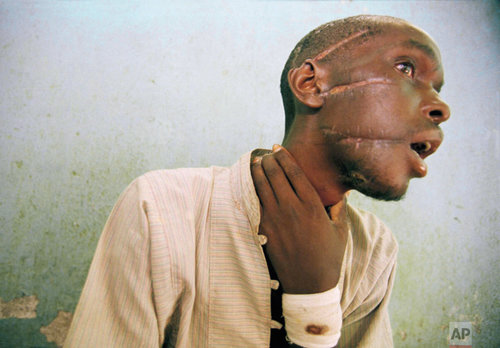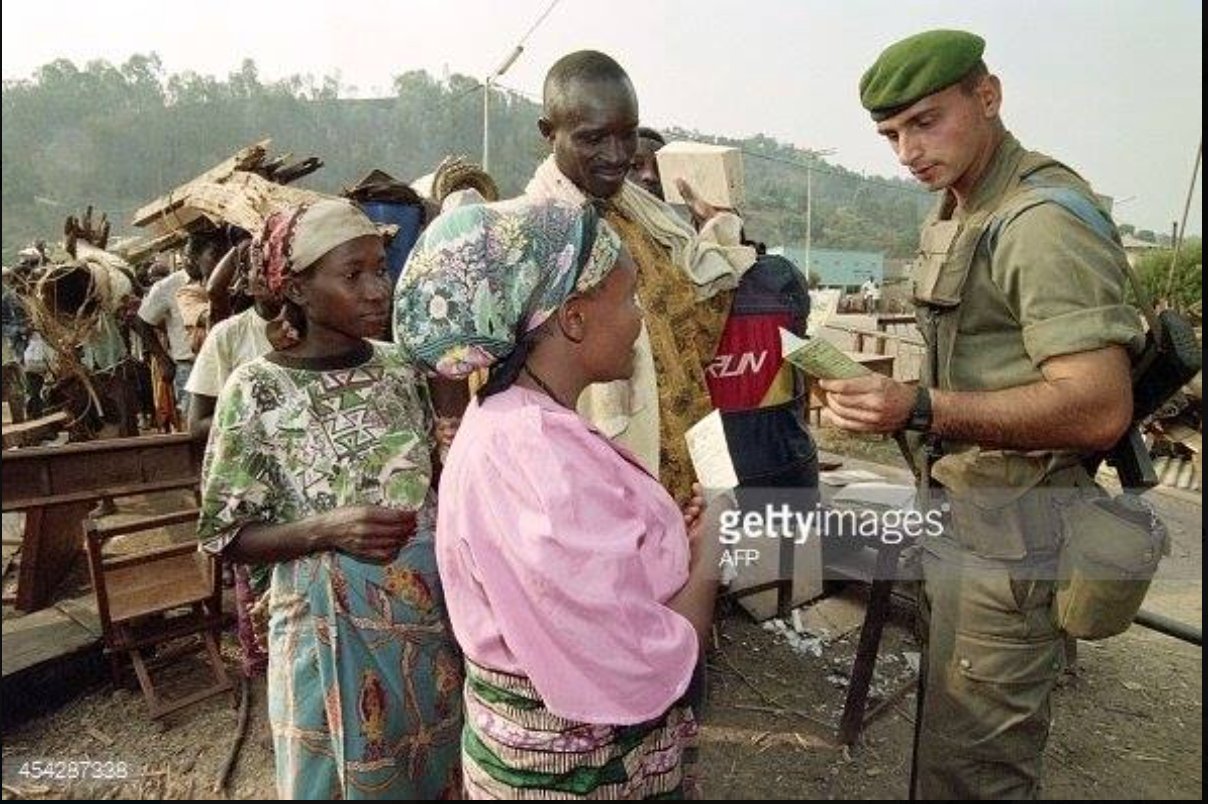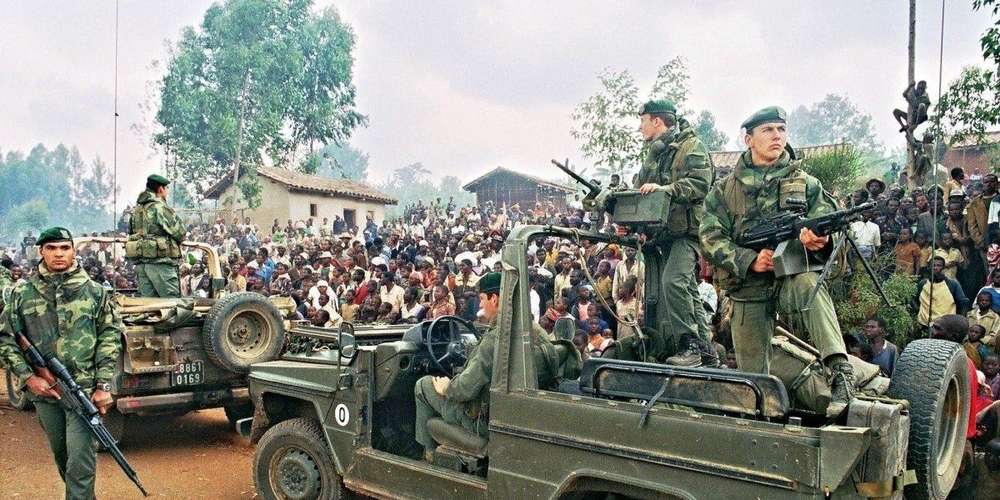Regional
27 years after 1994 Genocide, deniers and revisionists tear apart survivors' wounds

At the hospital in Kabgayi, Muhanga District, southwestern Rwanda, a victim bears scars of the 1994 bloodbath. Photo: Gilles Peress, Magnum Photos
April 7, 2021 marks the 27th commemoration of the Genocide against the Tutsi in Rwanda where more than one million innocent lives were lost in three months. April 7 was adopted by the UN General Assembly, in 2003, as the International Day of Reflection on the 1994 Genocide against the Tutsi in Rwanda.
There was a dark
cloud over Rwanda, when the genocidal government army and Interahamwe militia went on a mass killing spree.
The then government
planned the Genocide for a very long time as shown by studies. It is difficult
to find the right words to describe the inhuman brutality of the Genocide. Machetes were used to cut people into pieces
as they pleaded for mercy. Stomachs of pregnant mothers were cut open with
blunt knives. Their fetuses were removed and crushed to death.
People paid money
to be shot to death rather than be killed by use of machetes. Worse still, in
some regions, the killers removed the hearts of their dead victims, roasted and
ate them with excitement and jubilation. Tutsi women were gang raped and killed
by shoving long sticks into their private parts. The killers behaved far worse
than wild beasts.
Whenever we
commemorate the Genocide, all these gruesome pictures come alive in the memory
of Rwandans remembering how their loved ones were tortured before death. Those
who survived vividly recall how they got the permanent scars on their bodies.
Genocide commemoration is a period of bitter remembrance. Many people end up in
a coma due to trauma. Others have had unending traumatic episodes that have
ruined their lives. Life will never be the same again for the survivors. They
can forgive but they will never forget.
As we commemorate
the Genocide against the Tutsi after 27 years, the world is experiencing the
worst form of genocide denial and revisionism. The latter are crimes that are
painfully tearing into genocide survivors' wounds.
Many genocide
suspects continue to roam, freely, in foreign countries where they are given
time and space to spread genocide denial and the double genocide theory. Their
aim is distorting the truth and erasing the history. Although the world knows
that the international media was absent and did not speak for those who were
under threat of extermination, it is a big shame to see that today, the
international media is actively siding with evil.
Sadly, media houses like CNN, BBC, The Guardian, Washington Post and many
others turned into mouth pieces for genocide suspects, deniers, revisionists
and Rwandan terror suspects.
“As the international media was silent when our people were
being killed, they should as well be silent now and stop aiding the last stage
of genocide, which is denial. The men and women in the media doing these
shameful acts are in fact killing us twice, they are tearing apart our wounds,”
a genocide survivor said.
Journalists like
Judi Rever and Michela Wrong have found a hobby, and source of livelihood, in
stubbing and splitting open the wounds of genocide survivors, by writing books
that distort history, promote genocide denial and double genocide theory.
They have
invented their own version of history by turning the heroes who stopped the
Genocide into villains. These
journalists must be held accountable for the evil things they are doing against
Rwandans.
On the eve of the
Genocide commemoration, Wrong plans to launch a book - a direct provocation and
testimony that she belongs to the camp of genocide deniers and revisionists.
During genocide
commemoration period, genocide deniers and revisionists often intensify their
evil campaign to paint a bad image of Rwanda's ruling party, RPF-Inkotanyi, and
the person of President Paul Kagame. Those who have read the history of
genocides all over the world understand the intention. Genocide survivors very
well know what the RPF and President Kagame did to save them and what they
stand for, now, and in the future.
And that is why
the survivors, and many other Rwandans, overwhelmingly voted for Kagame to lead
the country from the brink of a failed state to the country it is today.
Majority Rwandans
this website has spoken to are of the view that it is high time the UN passed a
resolution stopping media programs and all books and publications that deny,
and trivialize the Genocide against the Tutsi as well as spread double genocide
theory.
No such books are
ever published denying and trivializing the Holocaust.
Why should the Genocide against the Tutsi be looked at differently?
The countries
hosting genocide suspects should be pressurized to extradite them to Rwanda or
ensure these criminals face justice in their host countries.



